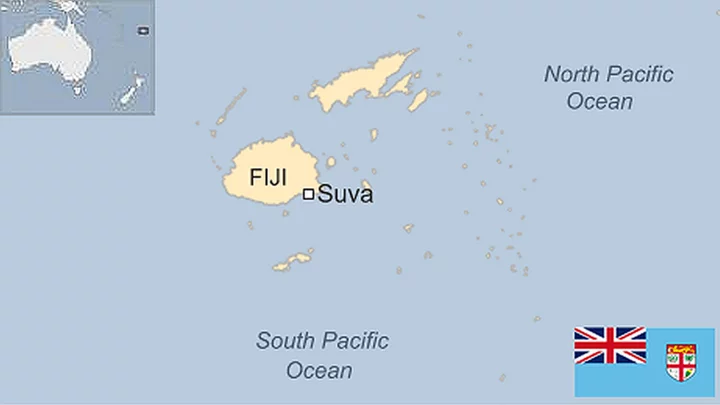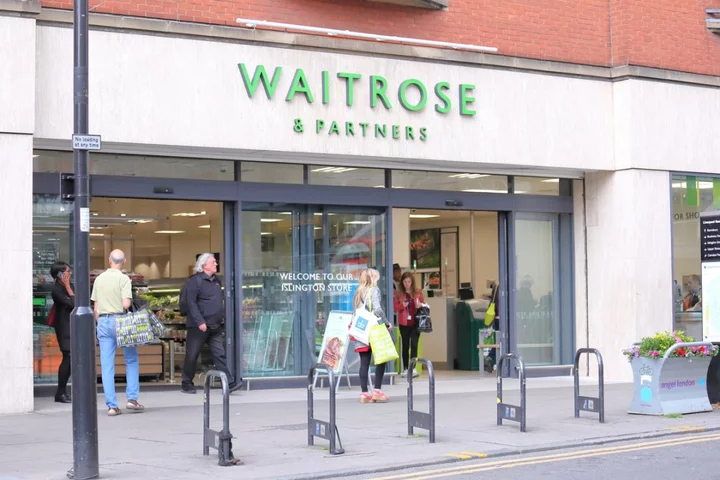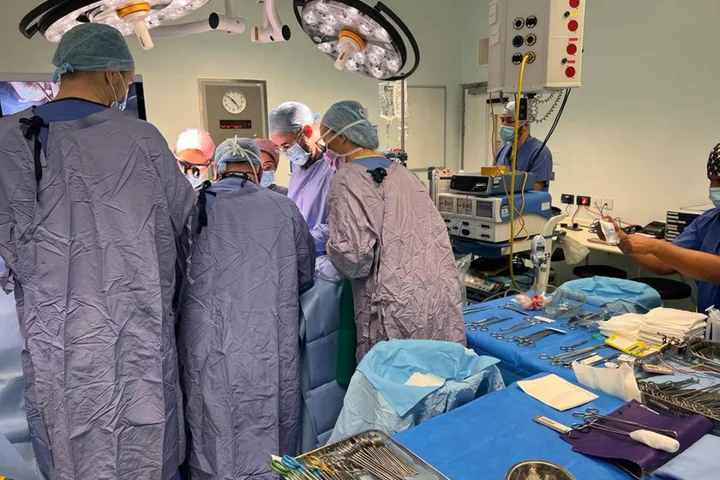
10 Supernatural TV Shows to Stream Right Now
Here's where to stream your favorite spooky shows, including 'Buffy the Vampire Slayer,' The Walking Dead,' and 'What We Do in the Shadows.'
2023-08-24 00:24

Fiji country profile
Provides an overview of Fiji, including key dates and facts about this Pacific island nation.
2023-08-23 23:26

Cook Islands country profile
Provides an overview of the Cook Islands, including key facts about this Pacific country.
2023-08-23 23:17

I was surprised when some of my student loans were canceled. Yours might be, too
The Supreme Court struck down the Biden administration’s plan to forgive up to $20,000 of student loan debt per borrower, yet loan forgiveness is still possible for those pursuing Public Service Loan Forgiveness or income-driven repayment forgiveness
2023-08-23 20:56

Edmunds: These cars will be gone after 2023
Every year, a number of new vehicles are discontinued, generally due to poor sales
2023-08-23 18:18

Taking adult education classes may lower risk of dementia, study suggests
Taking an adult education class could help lower your risk of developing dementia, researchers have found. Middle-aged and senior citizens in adult education have a 19% reduced chance of developing the condition within five years, a new study suggests. The findings also suggest that people who took the classes kept up their fluid intelligence – the ability to reason quickly and to think abstractly – and non-verbal reasoning performance better than peers who did not. First author Dr Hikaru Takeuchi, of Tohoku University in Sendai, Japan, said: “Here we show that people who take adult education classes have a lower risk of developing dementia five years later. “Adult education is likewise associated with better preservation of non-verbal reasoning with increasing age.” Here we show that people who take adult education classes have a lower risk of developing dementia five years later Dr Hikaru Takeuchi, Tohoku University Dr Takeuchi and his co-author Dr Ryuta Kawashima, also a professor at the Institute of Development, Ageing and Cancer at the university, analysed data from 282,421 people in the UK Biobank, which holds genetic, health, and medical information from approximately half a million British volunteers, They had enrolled between 2006 and 2010, when they were between 40 and 69, and had been followed up for an average of seven years at the time of the new study. Based on their DNA, people were given an individual predictive risk score for dementia, and self-reported if they took any adult education classes, without specifying the frequency, subject, or academic level. The study looked at data from the enrolment visit and third assessment visit, between 2014 and 2018. Those enrolled in the study were given psychological and cognitive tests, for example for fluid intelligence, visuospatial memory and reaction time. According to the study published in Frontiers in Aging Neuroscience, 1.1% of people in the sample developed dementia over the course of the study. It also found that people who were taking part in adult education, at enrolment had 19% lower risk of developing dementia than participants who did not. The results were similar when people with a history of diabetes, high cholesterol, cardiovascular diseases, cancer or mental illness were excluded. The researchers suggest this means the observed lower risk was not exclusively due to people with developing dementia being prevented from following adult education by symptoms of these known conditions. Dr Kawashima said: “One possibility is that engaging in intellectual activities has positive results on the nervous system, which in turn may prevent dementia. “But ours is an observational longitudinal study, so if a direct causal relationship exists between adult education and a lower risk of dementia, it could be in either direction.” Read More Charity boss speaks out over ‘traumatic’ encounter with royal aide Ukraine war’s heaviest fight rages in east - follow live Indiyah Polack: I didn’t want to go on Love Island because of my acne Everything you need to know about the UK’s first womb transplant Why are wellbeing experts concerned about the ‘lazy girl job’ trend?
2023-08-23 17:59

Indiyah Polack: I didn’t want to go on Love Island because of my acne
When Indiyah Polack got the call to go on the eighth season of ITV2’s Love Island in 2022, she had just had another bad acne breakout. “I didn’t want to go on the show anymore because of it,” the 24-year-old admits. “But then I really thought about it, I did my interviews and spoke to the producers, and they loved me. “I had to tell myself, ‘Well, Indiyah, they didn’t love you for your skin but your personality. I guess they want you for you. So don’t let it get to you. Your skin doesn’t define you’. This was how I started looking at it.” Polack ended the show in third place with Dami Hope – and the pair are still together. Since then, the former waitress has gone on to present Love Island: The Morning After Podcast with Sam Thompson and ITV2’s Love Island: Aftersun, alongside Maya Jama. “Imagine if I didn’t go on Love Island, I probably wouldn’t be in this position now, having this conversation,” she says. “We can’t let superficial things get us down.” Polack says she has always struggled with her skin. Growing up, her acne “definitely affected my confidence but I’ve got to the point where I’ve been living with it for so long. I don’t think anything is ‘bad skin’. Skin is skin. You either have spots or you don’t. “And as I’ve gotten older, I’ve started to think more about whether I would be in this position if I didn’t have acne. I know it’s a weird way to look at it, but I just think my skin makes me who I am. When I meet people, whether they like me or not, they don’t not like me because I have ‘terrible skin’.” As a result, skincare has become such a big part of Polack’s life. She has a morning and night time routine which can “get quite tiresome and hard to keep up with, especially during busy periods”, she says. “ I usually stick to five steps and make sure I wash my face, cleanse, moisturise, use SPF and then squalene.” Polack became a marketplace ambassador for PrettyLittleThing and has launched a new collection, designed with Chris Parnell, the fashion retailer’s head of design. The collection includes a range of mini dresses, cargos, corsets, and edgy co-ords, which Polack says will take you from day-to-night. There are added details like chunky buckles, lace ties, cut-out detailing, mesh and PU leather. But a statement denim trench coat with an exaggerated train, that Polack “fought long and hard for” is one of her favourite pieces. “I don’t think people really realise how much actually goes into designing a collection, there’s a lot of trial and error. There are a lot of fittings, reworking things, and making sure you’re happy with the quality of the materials,” she says. It was inspired by festival season and her own sense of style instead of ever-changing fashion trends. “I would say my personal style is sexy, chic, a bit cool, a bit amazing – no, I’m joking. I take a lot of inspiration from Rihanna. I love how she’s so effortless. And she does wear a few streetwear outfits and still looks sexy. That’s how I want people to feel in my collection.” Polack didn’t always dress the way that she does now, though. She still can’t really put her fashion style under one umbrella, but went through a lot of phases, including punk rock, where she says she would wear whatever made her happy and put chains on everything. The TV presenter’s relationship with her hair has drastically changed, too. Polack was first introduced to the nation on the reality dating game show, with her skunk stripes hair pulled back into a high ponytail (her go-to style) with flicked ends, another term for a two-tone hair colour where there is a contrast of a darker hue next to very light blonde. “Hair is just hair, so I don’t hold it as close to me,” she says. “When I went into the Love Island villa, I had tape-ins, as they were the most convenient hairstyle for me at the time. I have afro curly hair, so it would be very hard to maintain things like a wig in the heat. “But my hair got really damaged by the tape-ins. When I came out of the villa, my hair was so short, dry, and broken. I actually couldn’t get my hair in a bun and people – who can be so fickle at times – had so much to say about it in my comments. It’s going to grow back. But I feel like I have a good relationship with my hair now. It’s moisturised, I can tell you that. We’ve not got as many split ends.” Ironically, there was a time in Polack’s life where she hated putting her hair in a ponytail or bun. She felt like it made her look too young and didn’t want to look like a teenager but now she says, “it’s like a free face lift. I like it”. Skunk stripes are “the most subtle hairstyle” she’s done. “I used to dye my hair all the time. I’ve been every colour under the sun. When I was in sixth form, I used to rock a hot pink afro.” Was she allowed? “I wasn’t but I did it,” Polack says. “My hair was bleach blonde [at one point]. I went to a girls’ school and they were quite strict – no crazy hairstyles were allowed. They told me that I wouldn’t be able to go into my exam hall with my hair that way, but I was like, ‘Well I am, and I’m going to get an A*’.” It helps that the content creator believes everything is an assimilation. “ I do believe that nothing is that serious. I think going into the Love Island villa has changed me, and I don’t know if that’s for better or worse,” she says, with a laugh. “I just believe anything in your life can happen. I’m so blessed to be in this position and meet amazing people. It takes confidence and knowing what you really want. I’m a big believer of the law of attraction. If you ask, you will get it.“The only caveat is, you need to be grateful for everything you already have.” Shop Polack’s latest PrettyLittleThing collection at prettylittlething.com
2023-08-23 17:29

Waitrose has launched its first ever lunchtime meal deal
Waitrose has joined major supermarkets by introducing its first lunchtime meal deal. The upmarket retailer has said that on 30 August, it will be introducing its Food To Go offer, which will include a main, side and drink for £5, due to the growing demand for easy lunches as workers return to the office following the end of the pandemic. The deal will include a range of sandwiches, wraps, sushi and salads, alongside fruit, cereal bars, juices and smoothies. Waitrose has long offered all these products as part of its Food To Go range, but this is the first time they will be available in a lunchtime deal. Waitrose joins other supermarket chains including Sainsbury’s, Tesco, Morrisons and also Boots, which all offer lunch deals – but Waitrose’s deal is the most expensive, with Tesco’s deal costing £3.90 and Sainsbury’s and Morrisons’s equivalents costing £3.50. Meanwhile, a Boots meal deal costs £3.99 but it is £3.60 if you use an Advantage Card. MyWaitrose customers who bring in their own cup can also get a free cup of coffee when they buy their £5 meal deal. The supermarket has launched its first vegan BLT sandwich, and have also included chilled snacks such as Taiko gyoza and Higgidy ham hock & cheddar rolls in the deal. Speaking about the new launch, Waitrose Food To Go buyer Jennifer Moscardini said: “We know lots of our customers are heading into our shops to grab something for their lunch, so to be able to offer them a convenient, high-quality and great value meal deal is really important for us.” It follows reports that Waitrose and John Lewis will start offering free hot drinks and discounted food to on-duty police officers in an attempt to tackle shoplifting. The upmarket shops hope uniformed police and patrol cars being on site will deter thieves in a similar way to which motorists slow down on the roads when they see officers. John Lewis Partnership, which owns the brands, has written to the Police Federation to say officers can get free coffee if they bring a reusable cup. Community support officers will also be able to take advantage of the initiative, which John Lewis has named “thanks a latte”. Read More Prince Harry and Meghan Markle sightseeing tour led by Thomas Markle’s friend sparks outrage over privacy Bride tries on mother’s wedding dress 30 years after parents’ wedding Former royal chef explains why Prince William and Kate’s children don’t eat with them
2023-08-23 16:56

Tonga country profile
Provides an overview of Tonga, including key dates and facts about this Pacific island nation.
2023-08-23 16:49

Uzbekistan country profile
Provides an overview of Uzbekistan, including key events and facts about this central Asian country.
2023-08-23 16:29

Everything you need to know about the UK’s first womb transplant
The UK’s first womb transplant means that, in future, dozens of women born without a functioning organ can carry babies of their own. – What has happened? Surgeons have performed the UK’s first womb transplant on a 34-year-old woman whose older sister donated the organ to her. In a complex procedure, the medical team removed the womb from the 40-year-old woman and implanted it directly into her sister. Both women have made a good recovery. – Have any babies been born? Not yet. Experts want to be sure the transplant is stable and the womb is functioning fully before the younger woman undergoes IVF. She has stored eight embryos and will have fertility treatment later this year in central London. The woman hopes to have more than one baby. Once she has completed her family, the womb will be removed to prevent her needing immunosuppressant drugs for the rest of her life. – Has the NHS paid for the operation? No. Each womb transplant costs around £25,000 and is fully funded by the charity Womb Transplant UK. This includes payment to the NHS for theatre time and the patient’s stay on a ward. The operations are only carried out at times when the NHS is not using the operating theatre, so they do not impact on usual NHS waiting lists. Surgeons and medical staff involved in the transplant have not been paid for the operation and have given their time freely. – Have other womb transplants been carried out around the world? More than 90 womb transplants have been carried out internationally, with most operations involving a living donor. The first successful womb transplant took place in Sweden in 2014, with the baby – Vincent – born to a 36-year-old woman who described him as “perfect”. In 2000, a transplant was performed on a 26-year-old woman in Saudi Arabia but the donor womb survived for only 99 days due to problems with its blood supply. To date, womb transplants have been carried out in more than 10 countries, including Saudi Arabia, Turkey, Sweden, the US, China, Czech Republic, Brazil, Germany, Serbia and India. – How successful is the operation? Data from the US shows that more than half of women who received a womb through a transplant in the US went on to have successful pregnancies. Between 2016 and 2021, 33 women received womb transplants in the US and, as of last summer, 19 of them (58%) had delivered a total of 21 babies. In 74% of those receiving a womb, the organ was still functioning one year after transplant and 83% of this group had live-born children. – Will there be more transplants in the UK? Yes. The second British womb transplant is scheduled to take place this autumn and experts believe a maximum of 20 to 30 per year could be carried out in the UK in the future. Transplants could help women born without a functioning womb and those who lose their organ to cancer or other conditions. Estimates suggest there are 15,000 women in the UK of childbearing age who do not have a functioning womb. – Will there be a shortage of donor wombs? Womb Transplant UK is running two programmes, one involving living donors and another with organs from people who have died. The living donor programme in the UK has so far focused on women with relatives who are willing to give their wombs. However, the team believes that in the future, the living donor programme will expand to include friends or altruistic living donors. This is currently more common in the US. The use of deceased donors is assessed by the team on a case-by-case basis. Read More Charity boss speaks out over ‘traumatic’ encounter with royal aide Ukraine war’s heaviest fight rages in east - follow live Why are wellbeing experts concerned about the ‘lazy girl job’ trend? How to check for cancer, as Morrisons puts NHS cancer advice in underwear labels Prostate screening ‘could save lives’ – the symptoms and risk factors you need to know
2023-08-23 15:52

6 Legendary Beings Who Haunt America’s National Parks
The parks offer thrill seekers, ghost hunters, and the brave alike another reason to visit.
2023-08-23 06:30
